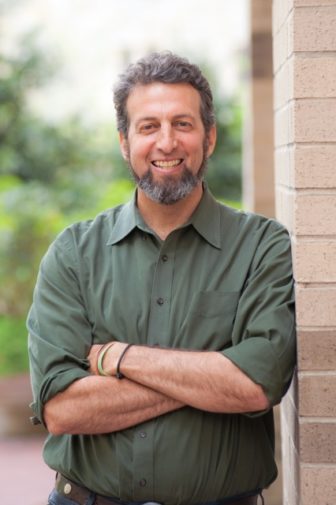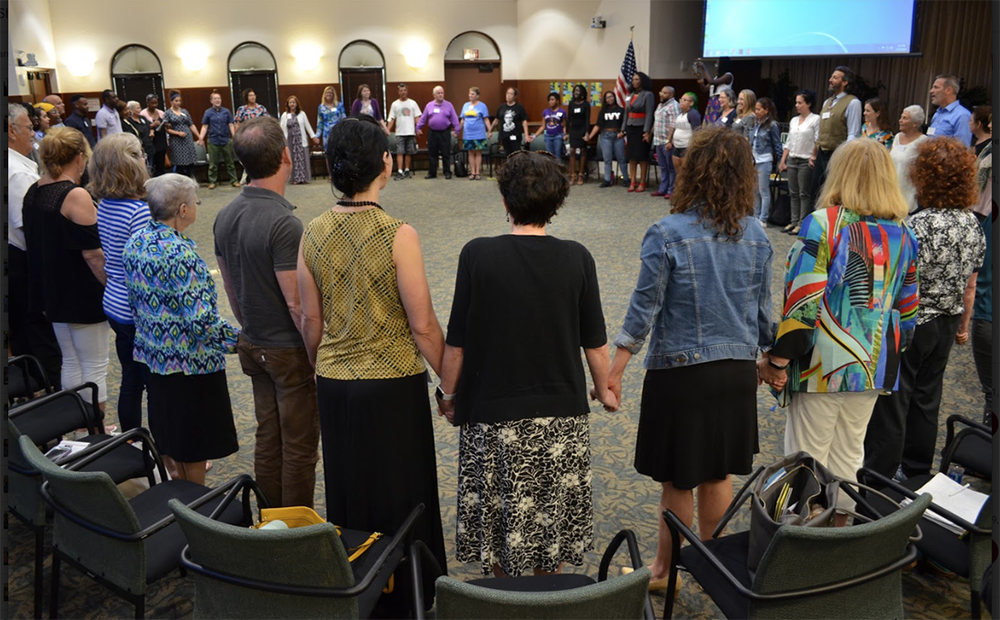![]() Formed in 2013 and established as a 501(c)3 nonprofit in 2014, the Florida Restorative Justice Association (FRJA) is the only entity in the state dedicated to supporting, strengthening and expanding Florida’s restorative justice practices (RJPs). In the last few years, the primary strategy to accomplish this task has been the creation of statewide conferences — one in Sarasota in September 2018 and one coming up in Broward County on Jan. 31, 2020.
Formed in 2013 and established as a 501(c)3 nonprofit in 2014, the Florida Restorative Justice Association (FRJA) is the only entity in the state dedicated to supporting, strengthening and expanding Florida’s restorative justice practices (RJPs). In the last few years, the primary strategy to accomplish this task has been the creation of statewide conferences — one in Sarasota in September 2018 and one coming up in Broward County on Jan. 31, 2020.

Dan Kahn
For a highly promising and largely undeveloped field of both study and professional practice, convening to share skills, perspectives, lessons learned and solidarity is a fundamentally significant step. This is particularly so in a blossoming movement whose core radiates a belief in the healing and creative power of coming together in conversation and connection.
Restorative justice practices may be described as facilitated group practices that emphasize shared understanding and repairing any harm experienced in connection with the actions of one or more individuals. RJPs may include community conferences, victim-offender dialogues, family group conferences or restorative circles, and have been increasingly used in juvenile settings and school systems, as well as adult criminal contexts. Some RJPs are more proactive than reactive, fostering connection, safety and mutual respect as a matter of course rather than responding to a particular incident or conflict.
The 2018 Florida conference was the first such gathering in the state’s history. One hundred and eight attendees were somewhat evenly divided among law enforcement personnel, teachers and school administrators, attorneys, public sector administrators and students. This diverse assortment of humans was united by at least a curiosity, if not a passionate commitment, toward the prospect that communication — in a context where every voice is heard — has the possibility of enriching our culture via school policies, criminal justice practices and beyond.
At the risk of offending some with the whiff of “Kumbaya” (a song I myself find touching), that weekend began with an audience sitting facing a podium, developed through a day of varied workshops and presentations and shared meals, and ended with the entire group in a large circle sharing reflections from the weekend and at one point (initiated by a participant) sharing a song. In-person conversation has a way of bringing people and ideas together. A lot can happen in two days when we offer pathways to finding solutions that address injustice, exclusion and harm.
Building stronger community
The workshops included examples of high-functioning model programs, national and regional data about the utilization and satisfaction of restorative justice, introductory trainings on particular skills and concepts, discussions of challenging topics such as addressing historical and current racial inequities, and other topics both practical and inspirational. What began Friday afternoon as a gathering of interested strangers evolved by Saturday night into a budding society of familial colleagues.
Florida is neither the leader nor the least advanced American state in terms of restorative justice progress — each state is on its own particular path. There are robust programs in several school districts and an array of individual schools utilizing restorative discipline practices. There are a few standout programs from Fort Lauderdale to Gainesville to Tallahassee and elsewhere using RJPs in selected juvenile and adult criminal matters.
As a matter of statewide policy, relatively little has been implemented, and this stands to reason. Legislation on its own would be hollow without a community of facilitators, trainers and allies in various sectors to make policy translate into effective statewide practice. And that community is what we are building when we come together for “show and tell” (and snacks, and even song when we are that lucky).
Something many of us have learned from sitting in circle with victims and offenders, or sometimes simply with people in conflict, is that apparently magical shifts can take place when our capacity to hear each other is empowered, facilitated. Prejudices and suspicions, even some we thought we’d be clinging to forever, can melt away — replaced by connection, understanding and acceptance.
To engage in such circles proactively before conflict or harm has arisen, is to plant seeds of a thriving community. And when that community is one that is already professionally and personally invested in our children’s education, our neighborhoods’ vibrancy, protecting and serving and keeping the peace, and the fluid functioning of our social mechanisms, then the ripples of such community-building work may have the leverage to move mountains.
Our last conference was in Sarasota. With our upcoming conference, we anticipate easily doubling the attendance of the original gathering. The prospect of such growth is thrilling, and inspires us at least as much to stay on the edge of our seats, leaning forward, as it does to rest on our laurels. More people, from more varied fields and backgrounds, means a continued necessity to remain inclusive and aware in our conversations and processes around policies, governance and organizational directions.
We exist to serve this field, and to hold a structure that enables participation, respect, care and effectiveness. We are working to see the interest and utilization of RJPs increase in public policy, higher education circles and public awareness. We may not always please everyone. We are humans working with humans — who sometimes need naps and sometimes are angry. But the prospect of serving this field effectively — this field that could leave our conference more empowered to bring greater peace and well-being to our schools, neighborhoods, courtrooms and elsewhere — is a task worth cherishing.
Dan Kahn is the executive director of the Florida Restorative Justice Association, a case manager in the Community Connections Restorative Justice Program, the facilitator of RJnet, a nationwide network of RJ networks, and national field coordinator of The Peace Alliance, a nonprofit dedicated to advancing practical peacebuilding tools.
